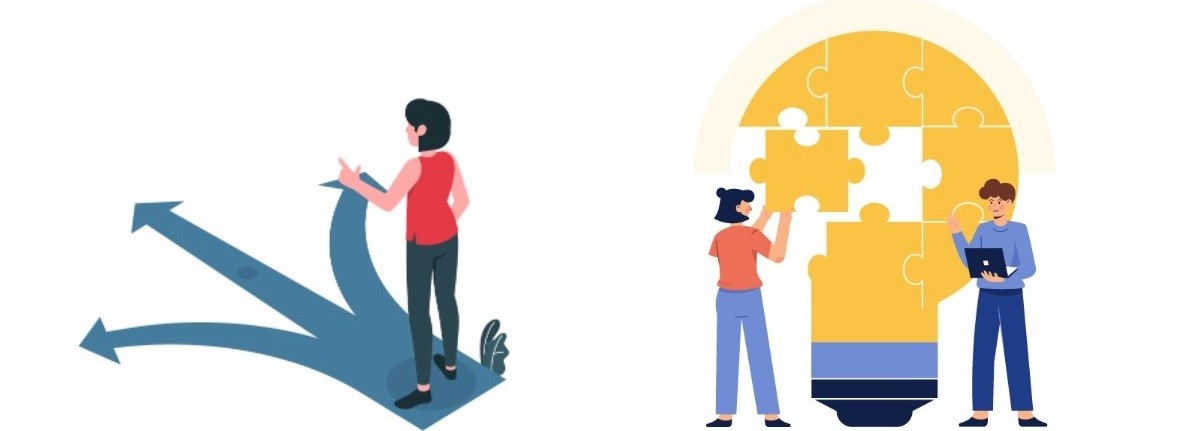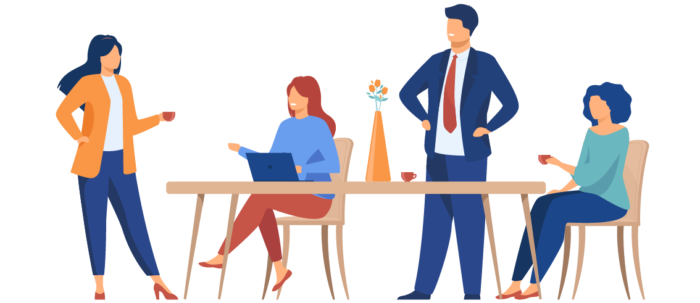Our hidden brain does many more things than our conscious brain. The hidden brain sacrifices sophistcation to achieve speed.
Give the statement above, another read. Did you miss the spelling error? If you did, the force at work here is your unconscious mind, quickly determining the correct spelling of “sophistication” so you can continue reading. Our brain is bombarded with information each second. It uses mental shortcuts for faster information-processing by noticing patterns and making generalisations – often resulting in unconscious biases.
Learning is a core DNA of the BYJU’S culture and so is achieving our maximum potential. BYJUites always strive to be the best version of themselves. Keeping this in mind, we have launched a series on Unconscious Biases and how to deal with them. Continue reading and discover unconscious biases!
By definition, unconscious bias is a learned assumption, belief, or attitude that exists in the subconscious. So yes, in spite of our best intentions, we are all guilty of being biased! But having biases doesn’t make us bad, it only makes us human.
These biases are developed over time and are affected by:

Factors affecting unconscious biases
Also read: Celebrating Women’s Week at BYJU’S with Learning, Fun, Surprises and More
Affinity bias:
Gravitating towards people similar to ourselves, also called like-likes-like bias.
“They are from my college, they will be a great fit for my team.”
The halo/horn bias:
Developing an overall impression of someone because of one of their qualities or traits. The impression can be positive or negative and is called halo and horn bias respectively.
“They are great at public speaking, so they must be great at managing people.”
“They don’t dress well, they must be lazy and unprofessional.”
Confirmation bias:
Cherry-picking information that confirms our own views and expectations.
“I believe they are good at managing deadlines, that is why they are always punctual.”
Anchor bias:
Overly relying on the first piece of information we receive as an anchor to base our decision-making.
“The first shirt I saw was for Rs 1000 and the second one was for Rs 700. The second shirt must be of lower quality”
Gender bias:
Unconsciously associating certain stereotypes with a particular gender.
Assuming a company’s CEO would be a man.
Ageism:
Stereotyping or discriminating against others based on their age, something that often happens to people from older age groups.
Viewing older people as out of touch, less productive, or stuck in their ways.
Status quo bias:
Preferring the way things are or wanting things to remain as they are, which can result in resistance to change.
Ordering a dish at a restaurant that you have tried before due to fear of disliking a new dish.
Illusory correlation:
Associating two variables, events, or actions together even though they’re unrelated to each other.
Preferring to wear a “lucky shirt” because something good happened when you wore it a couple of times before.
Recency bias:
Attributing greater importance to recent events over past events because they’re easier to remember.
Preferring to not buy a product because you recently read a negative review about it.
Read more: All That’s New at BYJU’S | Things to Look Forward to in 2022
The good news, even though these biases are innate, is that you can still prevent unconscious biases. Great news, you have already started! Yes, the first step to dealing with these biases is to LEARN ABOUT THEM.
Keep reading to know how to manage unconscious biases:
1. Be aware of your biases – Accept and acknowledge them.
2. Slow down your thinking, decisions and processes – Make more measured decisions instead of snapping into judgements.
3. Do not assume – Ask yourself these 3 questions:
Do I know this, or do I think I know it?
Where is the evidence?
Can this evidence be interpreted differently?
4. Focus on people as individuals rather than thinking about their particular characteristics.
5. Empathise with the feelings and viewpoints of others – Try to get to know other people’s stories as they can often provide great insight into their perspectives.
6. Work on increasing your cultural quotient – Proactively interact with people who differ from you in terms of ethnicity, background, beliefs, ideas etc.
7. Speak up when you see biased behaviour in others – Express your disapproval politely and choose the right channels.
8. Proactively educate yourself about unconscious biases – Keep researching and adding to your knowledge.
Combating Unconscious Bias can help you in many ways:

Leads to fair decision making Encourages creativity and innovation

Enhances interpersonal relationships
We reached out to BYJUites and asked them to share their experiences with unconscious biases. So many of them came forth and shared their stories of spotting, challenging and overcoming biases. These stories inspired all of us to be better and do better in terms of managing biases against others and also within ourselves. Here’s a glimpse of some of their stories:

BYJUites sharing their experiences with unconscious biases
Have you ever faced these biases? How did you tackle them? Let us know in the comments below!
Head to Life at BYJU’S to learn more about our work, people, and the stories that make us unique. To explore job opportunities, check out Careers at BYJU’S .
Rakshanda believes that stories can change the world and loves doing everything to bring them forth. She is a lover of dark humour and doesn’t mean most of it (well, almost!). An exceptional cook from a young age, she adores connecting with people over recipes and hot beverages. She prefers the company of doggos over humans and can be seen adding all things art to her Pinterest board during her free time. Got a recipe to share or story to tell? Reach out to her at storyweavers@byjus.com
Comments
Ponduru Jagadeeswara Rao
May 13, 2022
Interesting and useful information to me. I try to practice various types of bias
Palak khandelwal
April 7, 2022
I reckon it’s a great initiative by byju’s .. we all are aware about some bias and try to not to practice then as much as possible but for certain biasness ,we are really not aware and do it unintentionally .I believe such initiatives help us to think and definitely help us to be better at an individual level ..i guess obviously i have conscious not to discriminate any on the basis of gender , colour , wealth status but i feel sometimes if at once I don’t get good vibes from a person ,i try to maintain distance but now I think i should push myself beyond my comfort zone and try to talk to them again ..may be this time I’ll find a better version of that person . So i need to start avoiding that bias at my level .